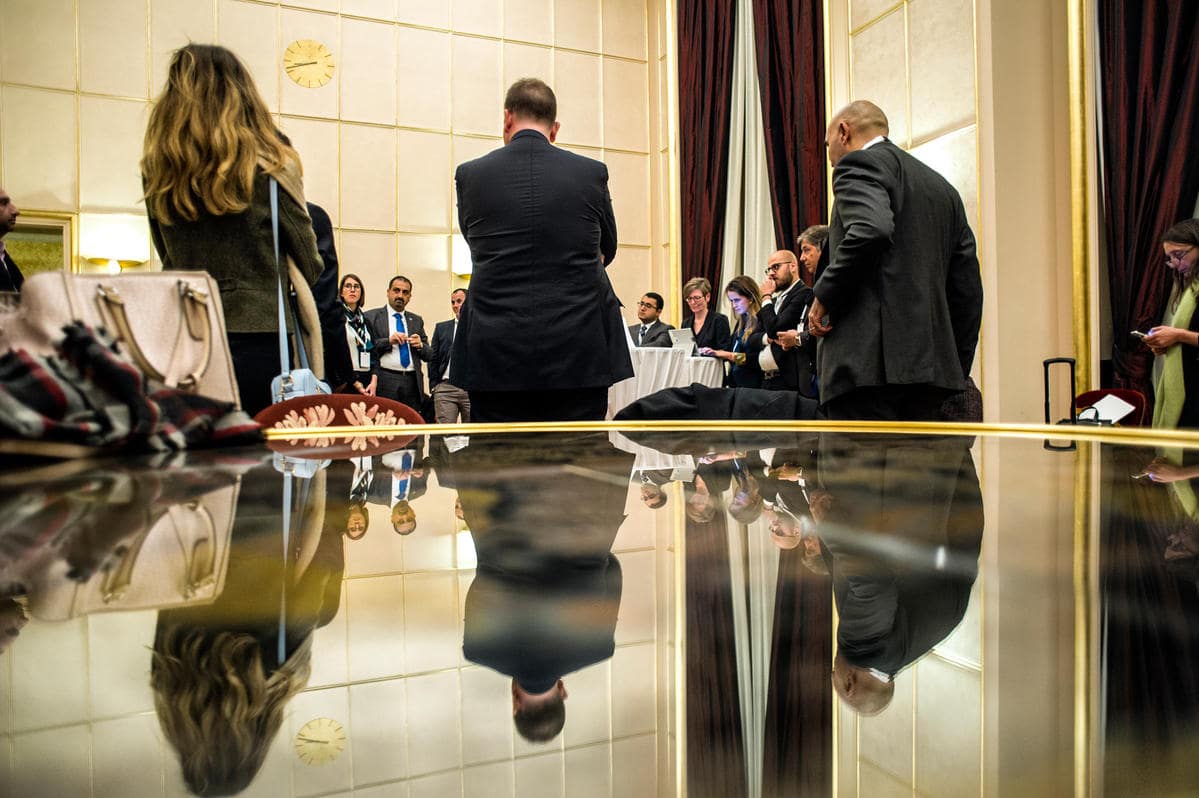
"Amid worst humanitarian crises since World War Two, frontline humanitarian negotiators must enhance dialogue with political mediators”
Geneva, 5 December 2017
Faced with the biggest array of humanitarian crises since 1945, frontline aid workers and political crisis mediators will meet today in Geneva to engage in informal discussions and share their experiences in crises and conflicts worldwide. “It is crucial that political mediators and humanitarian negotiators alike are sensitive to political interests as well as the fundamental principles of humanitarian action”, ICRC President Peter Maurer said.
“Frontline staff from all organizations risk their lives to bring aid and defuse crises. They have the best sense of the realities on the ground. They need to be heard and be part of the solution,” WFP Executive Director David Beasley said.
While political mediators and humanitarian negotiators share a deep concern for populations affected by conflict, differences in their mandates can entail limited interaction between the two. The needs of populations have never been so acute, which is why synergies between political and humanitarian actors must be better leveraged in respect of mandates, expertise
and experience.
“Protecting people affected by crises should be at the heart of all humanitarian action’ said UN High Commissioner for Refugees, Filippo Grandi, adding “restoring dignity and promoting resilience among people uprooted by conflict ultimately requires a political solution”.
The international community relies heavily on mediators to reach political solutions between parties to armed conflicts. Simultaneously, frontline staff of humanitarian organizations negotiate with an array of actors to ensure humanitarian access to and protection of civilian populations as well as persons who do no longer take part in hostilities.
There is a fundamental need for the two of them to talk to and listen to each other more – doing so can enhance humanitarian outcomes; and working in isolation from one another can result in protection gaps, duplication and misperceptions. The United Nations Office in Geneva, together with the Centre of Competence on Humanitarian Negotiation, provides today an opportunity for informal dialogue between political mediators and frontline humanitarian staff who work closely with local communities.
The informal gathering will bring together 160 frontline humanitarian staff and political mediators to discuss and compare challenges, dilemmas and how to negotiate the nonnegotiable. The event at the Palais des Nations is part of a two-day meeting of frontline humanitarian negotiators in Geneva, organized by the Centre of Competence on Humanitarian Negotiation, focusing on context-specific negotiation challenges as well as transversal themes; from the role of gender and diversity in access negotiations to the risks and opportunities of protection-oriented negotiations.
Organized in collaboration with the United Nations Department of Political Affairs and supported by the Swiss Federal Department of Foreign Affairs, the event will feature a keynote speech by the Deputy State-Secretary of Switzerland, Ms. Krystyna Marty Lang and insights from ICRC President Peter Maurer, WFP Executive Director David Beasley, UN High Commissioner for Refugees Filippo Grandi, Director-General of MSF Liesbeth Aelbrecht, UN Special Envoy for Syria, Staffan de Mistura, NRC Secretary-General Jan Egeland, UN-Under Secretary General for Humanitarian Affairs Mark Lowcock, and HD Senior Advisor Dennis McNamara. The event is hosted by Michael Møller, Director-General of the United Nations Office at Geneva.
The Centre of Competence on Humanitarian Negotiation (CCHN) is a joint initiative of the World Food Programme (WFP), United Nations High Commissioner for Refugees (UNHCR), the Centre for Humanitarian Dialogue (HD), Médecins Sans Frontières Switzerland (MSF-CH), and the International Committee of the Red Cross (ICRC). It was established in 2016 to enhance professional exchanges and peer learning among frontline humanitarian negotiators.
Further information:
Andreas Kaufmann
Communication Coordinator, CCHN
+41 79 218 74 34
[email protected]
www.frontline-negotiations.org
